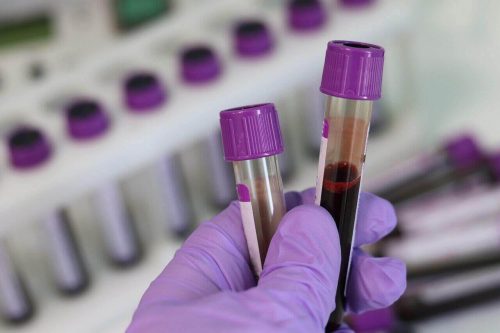Every mother wants her baby to develop and come into the world in the healthiest way possible. For this to happen, it is essential that she remains strong, healthy, and nourished throughout all stages of pregnancy. However, unfortunately not all women are able to give their diet the necessary attention. There are countless reasons why a pregnant woman may not be able to consume all the necessary nutrients, and that’s when multivitamins and supplements come into play. To help pregnant women maintain adequate nutritional levels for the baby’s development, the World Health Organization (WHO) recommends folic acid supplementation and ferrous sulfate for all pregnant women, especially those in the first trimester. 
- What is folic acid
- Folic acid during pregnancy
- Folic acid in preconception
- Folic acid deficiency
- Benefits of folic acid supplementation
What is folic acid
Folic acid is the synthetic form of folate, also known as Vitamin B9. As it is an essential vitamin (not produced by the body), it can only be obtained through food. Although it is present in foods that are easily found and widely consumed in Brazil, such as beans and corn, many women have a folic acid deficiency, which leads to a series of health consequences. Folic acid is needed for the synthesis of purines (DNA bases) and thymidylate, an enzyme that helps in the formation of DNA. This makes folate an essential substance for the synthesis of DNA and RNA and a fundamental element in the formation of red blood cells (blood cells) in the bone marrow. 
- acts in the production of genetic material,
- produces blood cells
- develops brain cells
- prevents neural tube defects in the fetus
- supports growth and development during childhood
Folic acid during pregnancy
During pregnancy, our bodies need to make a series of adjustments to provide the baby with everything it needs to grow and develop healthily. One of these adjustments is the need to produce more blood so that both the mother and the baby have enough in their bodies to supply all organs. Because of this, during pregnancy it is necessary to consume more folic acid than usual, so that blood production increases and everyone gets what they need. A diet low in folic acid can lead to anemia, raising the risk of the baby being born prematurely, with low birth weight and/or anemia, among other more serious problems depending on the severity and duration of the mother’s anemia.
Folic acid in preconception
Even though it is an extremely valuable vitamin for pregnant women, folic acid is important for all human beings, especially babies and children. As we mentioned in the previous section, it supports several bodily functions, DNA and RNA synthesis, red blood cell production, and brain cell development. For this reason, it is very important that everyone maintains good levels of folic acid, since its deficiency can lead to anemia and other health issues. Here, we highlight the importance of supplementation for women trying to conceive. In its guideline for folic acid and iron supplementation for non-anemic pregnant women, WHO provides very important information. Folic acid supplementation before conception reduces the chance of a baby having neural tube defects (spine and brain) by 75%. That is, if you are trying to conceive, taking folic acid-based multivitamins is proven beneficial.
Folic acid deficiency
Folic acid deficiency is a nutritional deficiency associated with non-communicable chronic diseases, complications in pregnancy, and neurodegenerative diseases. Its main causes are insufficient consumption of folate-rich foods, alcoholism, or problems in nutrient absorption. Absorption issues are normally caused by celiac disease (gluten intolerance) or the use of certain medications that interfere with folic acid metabolism. For pregnant women, folic acid deficiency is even more concerning, as if not corrected as soon as possible, it can lead to several complications such as preeclampsia, delayed uterine growth, hemorrhage and, in more severe situations, spontaneous abortion.
- diarrhea
- dryness, peeling and whitish spots on the lips
- inflammation or infection of the tongue and gastrointestinal disturbances
- fatigue
- irritability
- anorexia
- weight loss
- headache
- dyspnea (shortness of breath)
- palpitations
If you experience and persist with one or more of these symptoms, it is essential to seek medical attention as soon as possible. For pregnant women, professional guidance is even more important to ensure the health of both mother and baby.
IMPORTANT: During pregnancy, the listed symptoms may indicate other problems beyond folic acid deficiency, such as preeclampsia, gestational diabetes, fetal growth restriction, etc. So if you are pregnant and feel any of these symptoms for more than 24 hours, seek medical attention immediately.
Diagnosis Symptoms are signs that your body gives that something is wrong and needs to be checked out. For this reason, just experiencing one or more symptoms does not mean you have a folic acid deficiency. To have an accurate diagnosis and appropriate treatment, you should seek medical attention and start an investigation.
Benefits of folic acid supplementation
Folic acid is a vitamin easily found in food; however, despite this, many people have inadequate amounts in their diets. Whether due to personal taste, economic or practical reasons, the reality is that we are consuming less folic acid than we should. To resolve these situations, multivitamin supplementation is indicated.
- Spina bifida: A defect in the formation of the spine and/or spinal cord, which can lead to speech, mobility, breathing problems, and neurological damage such as hydrocephalus (fluid build-up in the skull). In cases of spina bifida, if the diagnosis is made during prenatal care, there is the option of intrauterine surgery to alleviate symptoms.
- Anencephaly: The most serious of all NTDs, where brain tissue does not develop properly. In these cases, unfortunately, survival is not viable. This is one of the few cases where abortion is legally allowed at any stage of pregnancy, as there are no chances that the fetus will be born alive.
- Chiari malformation: A malformation at the junction between the skull and the spine in which part of the brain (cerebellum) enters the spinal canal. Depending on the type (I, II, or III) the degree of invasion varies, as do the consequences.

















